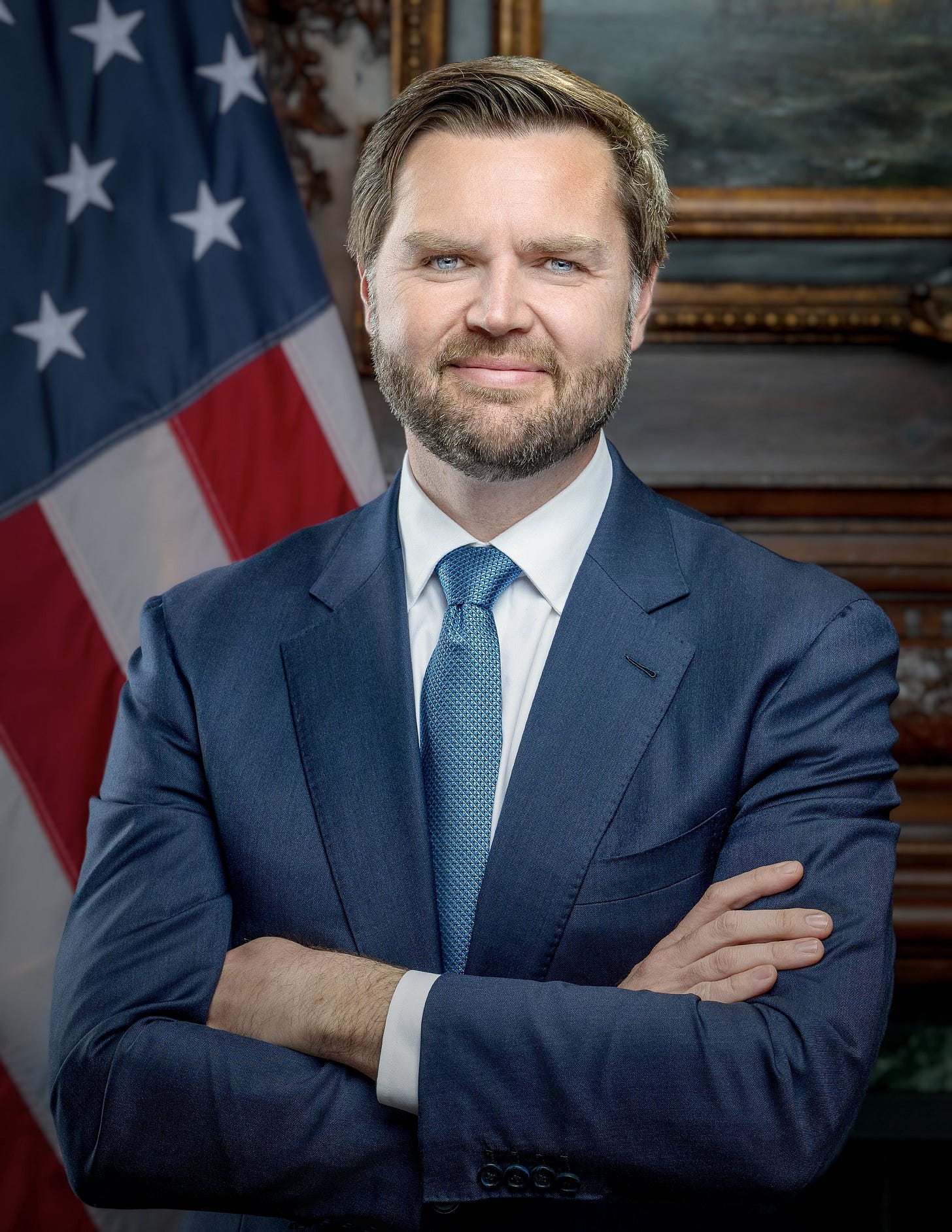J.D. Vance's strange role
The difference between prominence and power
The saying, “Children should be seen and not heard” traces back to a book of sermons compiled by John Mirk in the late 1380s.
Mirk was a priest in Shropshire, in western England. His book, titled “Festial,” was so popular it was hand copied more than 40 times and, after Gutenberg’s invention of movable type, printed in more than 20 editions.
“In the original form it was specifically young women who were expected to keep quiet,” according to the Phrase Finder. Mirk wrote that there was an Old English saying, “A mayde schuld be seen but not heard.” A “mayde” was a young girl, although the term could also refer to celibate men.
As parental advice, the saying is horrendous. As guidance for U.S. vice presidents, the idea of being “seen and not heard” is virtually a job description.
By tradition, vice presidents are expected to never disagree publicly with POTUS. They represent the White House at ribbon cuttings and funerals, their statements car…




